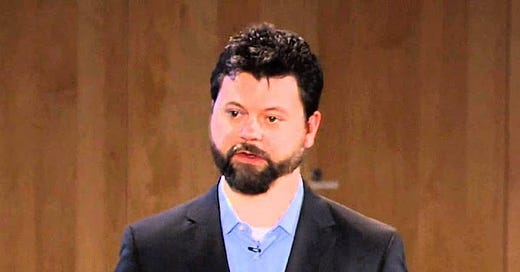Video interview: David Roberts on climate change
The blogger and climate expert talks to me about technology, politics, and whether we're all going to die
When I want to know stuff about climate change, the first person I turn to is David Roberts. Over the years, his clear and comprehensive writing on the topic has vastly increased my understanding. He’s written for many publications, including Grist and Vox, but now he writes the excellent substack Volts.
There have been a number of interesting and important developments on the climate front recently — some technological, some political, and some scientific. So I thought I’d sit down with David and talk about all these changes. (We were going to do a text interview, but David’s tendonitis was acting up, so we went with video instead.) This one is pretty long, but chock full of informative stuff.
Among the key points:
A combination of global decarbonization efforts and improved climate science has all but ruled out the sort of catastrophic, world-ending climate scenarios that were being thrown around a few years ago.
However, we haven’t decarbonized fast enough, and we’re still on track for more than 2°C of warming.
2°C of warming is really bad — far worse than most people realize. And 2.5°C is far worse. These small numbers conceal huge differences in future outcomes.
In fact, some regions of the Middle East are approaching unlivable heat right now; some people are starting to live underground.
Fortunately, technological improvements are beating all expectations. If you want to feel positive about the future of the climate, read a lot more about technology. This is the best antidote to “climate anxiety”.
The most critical technological advance we need right now is long-term energy storage. Solar and wind are already cheap to install, and lithium-ion batteries are getting good at storing energy for a few hours. But storing energy from summer to winter (or vice versa) is still the big problem.
The most promising technology for long-term energy storage is probably hydrogen. Electrolysis, like solar and batteries, seems to be following a “learning curve”, meaning that the more of it we do, the cheaper it becomes.
Iron-flow batteries are probably not a good long-term storage solution.
The ultimate solution for a decarbonized electrical grid will include a vast array of different technologies — long-term storage, short-term storage, nuclear, geothermal, and also strategies to manage electricity demand.
One underrated approach is to find ways to do economic activity at different times of the day or different times of the year.
Politically, David and I are split on the role of the Left. I worry that climate leftist movements are wandering off into NIMBYism and non-climate-related issues. David believes this is necessary in order to build effective political coalitions. I am not convinced.
However, David and I agree that online politics — especially Twitter politics — is generally more histrionic and unhelpful than offline politics.
The best way for us to get China to decarbonize — really the only way — is to make zero-carbon technologies so cheap that it will be in China’s own economic interest as fast as possible.





Roberts is also an editor at Canary Media, a renewable energy news group that's a must subscribe for anyone interested in renewable energy!
Noah, Volts and Dave Roberts are awesome, but also checkout https://xenetwork.org/ets/ - Chris Nelder brings in a fair number more scientists, modelers, and policy people that overlap with the ones Roberts' interviews, but also typically goes into significantly more depth.